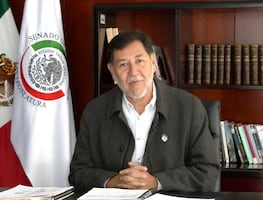A simple Google search of the word “corruption” throws up 21 million 400 thousand results in 0.52 seconds. If you search “honesty” there are only 10 million 800 results. The contrast is alarming.
Last July, the National Institute of Geography and Statistics (INEGI) of Mexico announced that in 2016, corporations in Mexico had to pay over one billion and a half of Mexican pesos to federal, state or local authorities due to corruption acts.
Last January, Transparency International stated that Mexico fell 28 positions in the Corruption Perceptions Index (CPI) with a score of 30, according to a scale from 0 to 100, where 0 is the most corrupt. Within the 35 member countries of the Organisation for Economic Co-operation and Development (OECD), Mexico holds the last place, according to the CPI.
During the administration of Miguel de la Madrid (1982-1988), Mexico institutionalized the fight against corruption with the creation of the Comptroller's Office of Mexico, currently the Civil Service Secretariat. Yet the results haven't even been scant, they have been nonexistent; a real failure. In March 2015, EL UNIVERSAL published that, between December 1, 2006, and September 30, 2014, the Civil Service Secretariat collected 53 million Mexican pesos in fines to corporations or legal entities for corruption acts, which barely represents 7.3% of the penalties imposed during this term.
A review from the Superior Audit Office of Mexico to the performance of the Civil Service Secretariat in 2011 showed that the Secretariat had repeatedly failed to make its arguments before the court, that months – or even years – go by without the Secretariat presenting evidence against those accused of corruption, and that they have procedural errors which allow suspects to win their cases. Within this context it's evident political corruption is commonplace in Mexico.
And the recent cases are just more evidence of this: the involvement of the former CEO of Petróleos Mexicanos (PEMEX), Emilio Lozoya in the Odebrecht case inquiries of Brazil; the collapse of the Express Passageway in Cuernavaca , the alleged accusations against the construction companies OHL and Higa; the fact that former governors such as National Action Party's Guillermo Padrés , or the Institutional Revolutionary Party's Javier Duarte and Roberto Borge are all currently in jail due to alleged acts of corruption; the struggle of the Democratic Revolution Party to recover from the aftermath of the video scandals and the accusations against former majors from the Party for their alleged involvement in organized crime, such as José Luis Abarca; the withdrawal of the immunity of Eva Cadena, from the National Regeneration Party for alleged illicit enrichment; the sudden increase of the estate of the national leader of the PAN, Ricardo Anaya and his political family, which this newspaper has documented; the current case against Governor of Nayarit, Roberto Sandoval , who is being investigated by the Office of the Mexican Attorney-General (PGR) for alleged illicit enrichment; without forgetting about local candidate Hilario Ramírez, who, during one of his campaign speeches said he did steal, “but just a little”. The list goes on and on.
Corruption was democratized within the political parties and little has been done to fight it. Mexico has had enough.
am










